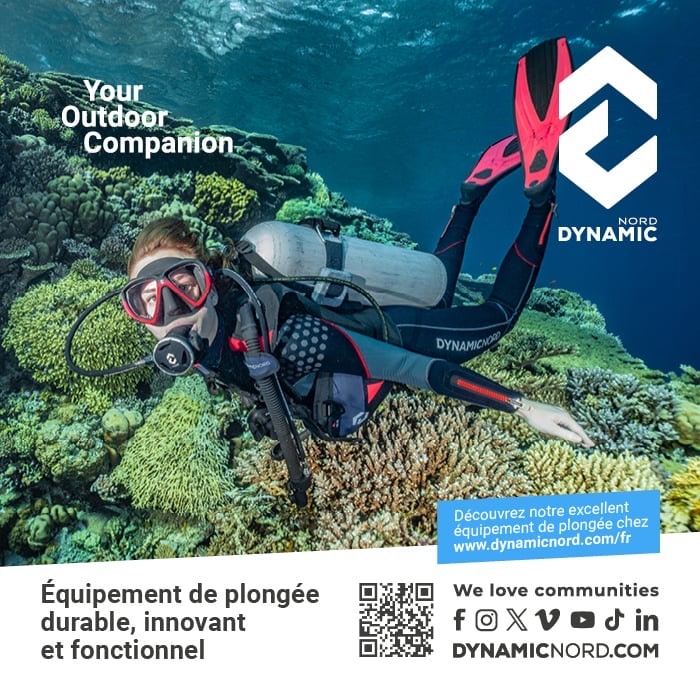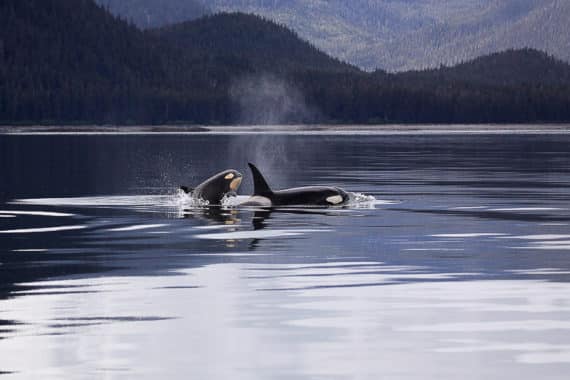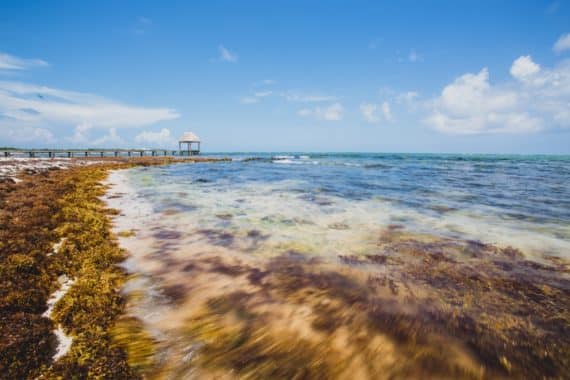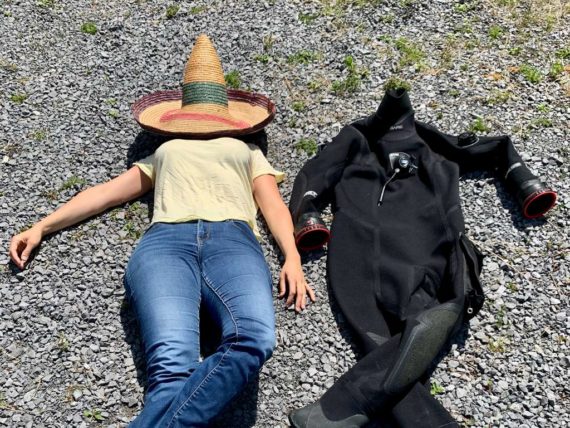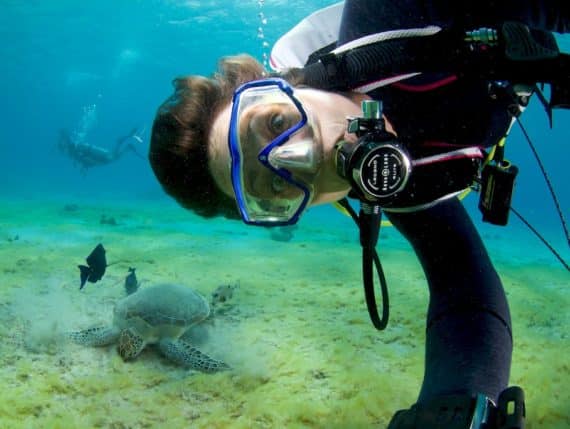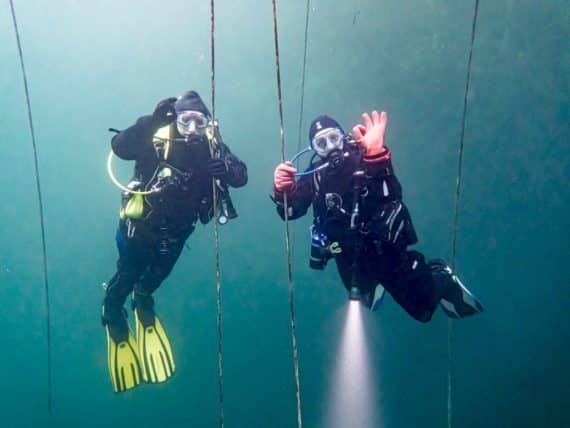# 8 attitudes of divers who benefit (more intensely and stronger than others)
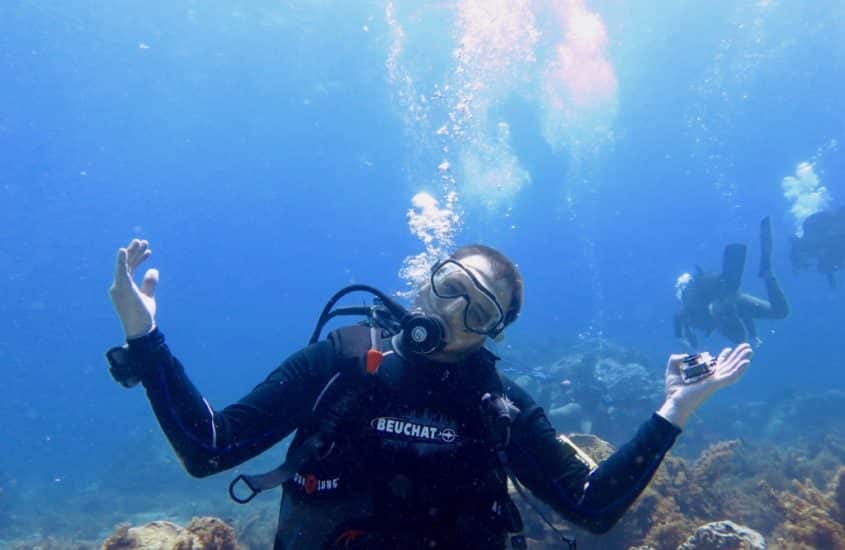
Whether you are a diver or an instructor in a dive center. It is important to understand and target the features and attitudes that will make a simple dive experience for you or your guests an unforgettable experience.
Experience shows that it is not just the technical skills. The spot or “what to see” but more simply the attitudes of the people who will make each of your dives magic moments.
No matter what level of diver or leader you will encounter, detecting these attitudes is paramount.
Learn to recognize them and surround yourself with people who cultivate them to guarantee you exceptional moments.
What are these attitudes that you should spot?
#Optimism versus pessimism attitudes
The pessimistic diver will find in every dive THE detail that has spoiled his experience. Too much or not enough current, visibility not great, not the right buddy, “nothing to see”, too hot or too cold, “… Run away!
On the contrary, the optimistic diver will be delighted with each of his dives.
At each dive, he will be able to retrieve beautiful elements from his experience.
No matter where you are (cold quarries in the North or hot seas). He will always find this little detail that will make this moment unforgettable by letting himself be carried by what nature has the most beautiful to offer him.
Energetic and full of enthusiasm, the optimistic diver has an attitude of openness and incredibly contagious happiness. Sure, we love being in his team.
The optimistic diver is the diver who will transform each of your dives into an excellent memory. As for the pessimistic diver, …
# Cooperation versus individuality
The diver with the individual attitude dives for him and just for him. Unconcerned about the others around him. He will live HIS dive whatever happens and cultivate the “just me myself and I”.
In contrast, the cooperative diver has long learned that a successful dive is shared with others.
He dives WITH his buddy and will be the first to share his good “tricks”. The cooperative diver is inclined to help others to equip himself, for example, and is generally helpful. It takes a lot of fun to interact with its diving partners before and after the launch. The cooperative diver is ready to share his knowledge and knowledge for the good of all and not to show off.
During the dive, he is attentive to communicate his pleasure and his discoveries with the rest of the divers and is attentive to the others.
If assistance is needed to get out of the water (diving from a zodiac, for example). He does not hesitate to allow people who have less facilities to pass first.
The cooperative diver is a highly sought-after buddy. As for the individualist diver, …
# Humility versus arrogance attitudes
The arrogant diver had the impression of having seen everything, all is understood, all is known. It is clear that he owns the entire knowledge and mastery of diving from A to Z.
The diver who knows how to show humility acts quite contrary to this attitude.
He is ready to discover new things and to learn from others in any circumstance.
While the arrogant diver will never ask questions (normal, he knows everything). The humble diver, whatever his level of diver or leader, will always be in an attitude of openness, research and understanding. He will ask questions that come to mind and ask for help when he needs.
You always want to share the dive with the humble diver. As for the arrogant diver, …
#Active versus passive
The diver who adopts a passive attitude expects the dive to bring happiness and plenitude without having to make any effort. It is said of him that he is more a consumer than an actor of his own dive.
For its part, the active diver will always be ready to give his dive every chance of being exceptional.
Before diving, he will ask his questions to the dive director to make sure he can plan his dive as well as possible. He will be in charge to lead the team and to make sure that all the conditions are met for a dive full of pleasure. The active diver will not stand still in case of problems. But will put his skills, ideas and creativity directly in solving problems and finding solutions.
The active diver is a real leader with whom it is difficult to get bored. As for the passive diver, …
#Conscient versus unconscious
The unconscious diver leaves his “guard neuron” on the surface (sometimes even at home). And ignores the basic rules of safety in diving because it is obvious that the worries are for others! The danger ? He does not know what that means.
The conscient diver privileges safety, reflects on the rules of safety and understands the interest of following them so that each of his dives is an experience that brings him pleasure and joy. Prevention, planning, respect of the depths and instructions of the dive director, …
He knows that these are elements of success and that braving them will not make him a “super diver”.
Moreover, it is clear that adopting a conscious attitude is also safer for the other members of the team.
As he likes to multiply the experiments safely and to his delight. The conscious diver will not hesitate to train NITROX diving, to have his equipment regularly maintained by a licensed professional, to equip himself with modern diving rig and, of course, to surround himself with conscious buddy.
The conscious diver is a safe buddy on which one can count. As for the unconscious diver, …
#Evolution versus the past
The diver turned to the past adores to say that after all he has “always done like that”. Adept, maybe nostalgic of vintage dive equipment. He can dare to use a Fenzi, propose to dive with tables or with a Mistral regulator.
In contrast, the evolutionary diver understands that computers are increasingly performing, are reliable, and are designed to minimize the risk of decompression sickness and / or too rapid ascent. He regularly checks his equipment and replaces what is worn, outdated or defective.
The “evolutionary diver ” does not hesitate to question the techniques learned. And conceives that in this field also there can be advances.
He is attentive to the research carried out on the health of divers (for example by DAN). And does not hesitate to adapt his diving behavior to new discoveries. This is particularly true in the case of rescue and resuscitation techniques, on which he is very picky.
It is a pleasure to discuss new developments with a diver adopting an attitude of evolution. This type of diver offers a safety-oriented attitude. As for the diver oriented to the past, …
#Patient versus impatient
The impatient diver does not like the steps. He leads a race at level crossing and going deep. For him, nothing counts more than to progress very quickly, to the detriment of the rest.
The patient diver understands the importance of taking his time for each stage and privileges the serious experimentation of the prerogatives that gives him his level of diving. He knows that the aquatic environment is not his natural environment. And that to be able to dive safely, it is necessary to leave a minimum of time to his body and his mind to integrate the new gestures and the new techniques. He knows that repeating the good actions again and again will allow him to make them habitual and to become very responsive to different situations.
The patient diver likes diving and wants to practice his passion for a long time.
It favors quality over quantity. And does not take into account at all the competition for the greatest number of dives carried out. He prefers to leave it to others, to concentrate on reinforcing his achievements and to set himself little by little new challenges.
The patient diver, by nature, likes to take his time and brings a lot of serenity and security in his team. As for the impatient diver, …
#Respect versus disrespect attitudes
The disrespectful diver of the environment and the structures placed at his disposal adopts a contemptuous attitude. He does not hesitate on the surface to pollute the beaches. To abandon his waste in the locker rooms, to throw his cigarette butts on the ground (is a diver smoking?), To neglect the equipment borrowed or rented. Underwater, this disrespectful diver raises the rocks without worrying about the ecosystems. Disturbs the fish, breaks the coral, pushes the air with his octopus to bring out the moray eels from their hiding places, goes up “treasures” torn from the wrecks, … In short, it adopts an attitude of the type “nothing to do with ecology”.
The respectful diver
Is interested in the future of the seas and oceans and is aware that he is only a guest in this vast ecosystem in fragile equilibrium.
He observes the fauna and flora. And marvels at having the chance to be part of the tribe of underwater explorers. He often likes to take the time to contemplate the life around him. And collect the waste (plastic bags, nets, …) placed at seabed so that these do not hurt the marine species. On the surface, he respects the facilities placed at his disposal (and the people) and takes care of the equipment entrusted to him. He makes sure not to rinse his boots full of sand with the regulators of his buddy and is careful not to shake the tray where the delicate cameras of other divers dip.
The conscious diver is a diver with whom one likes to rub shoulders without being “on guard”. As it is interested in the fauna and flora, it regularly circulates interesting information. As for the disrespectful diver, …
This list of attitudes of divers (more intensely and stronger than others) is obviously not exhaustive but it will allow you to easily detect the attitudes that will make your dives either awfull or great.
Therefore, practice regularly to recognize them within the divers you are in contact with. No matter their level of diver and / or leader, run away from them as soon you suspect they are people that will make your dives annoying and potentially dangerous moments! On the contrary, spot the divers and / or supervisors who cultivate the attitudes favoring exciting dives, interesting and which emphasize the security and the pleasure.
Which buddy will you choose for your future explorations ?
If you have already spotted these characteristics (or others) in divers, tell me below or tag the name of your favorite buddy on my Facebook page.
… do not forget to be happy 😃
Helene



